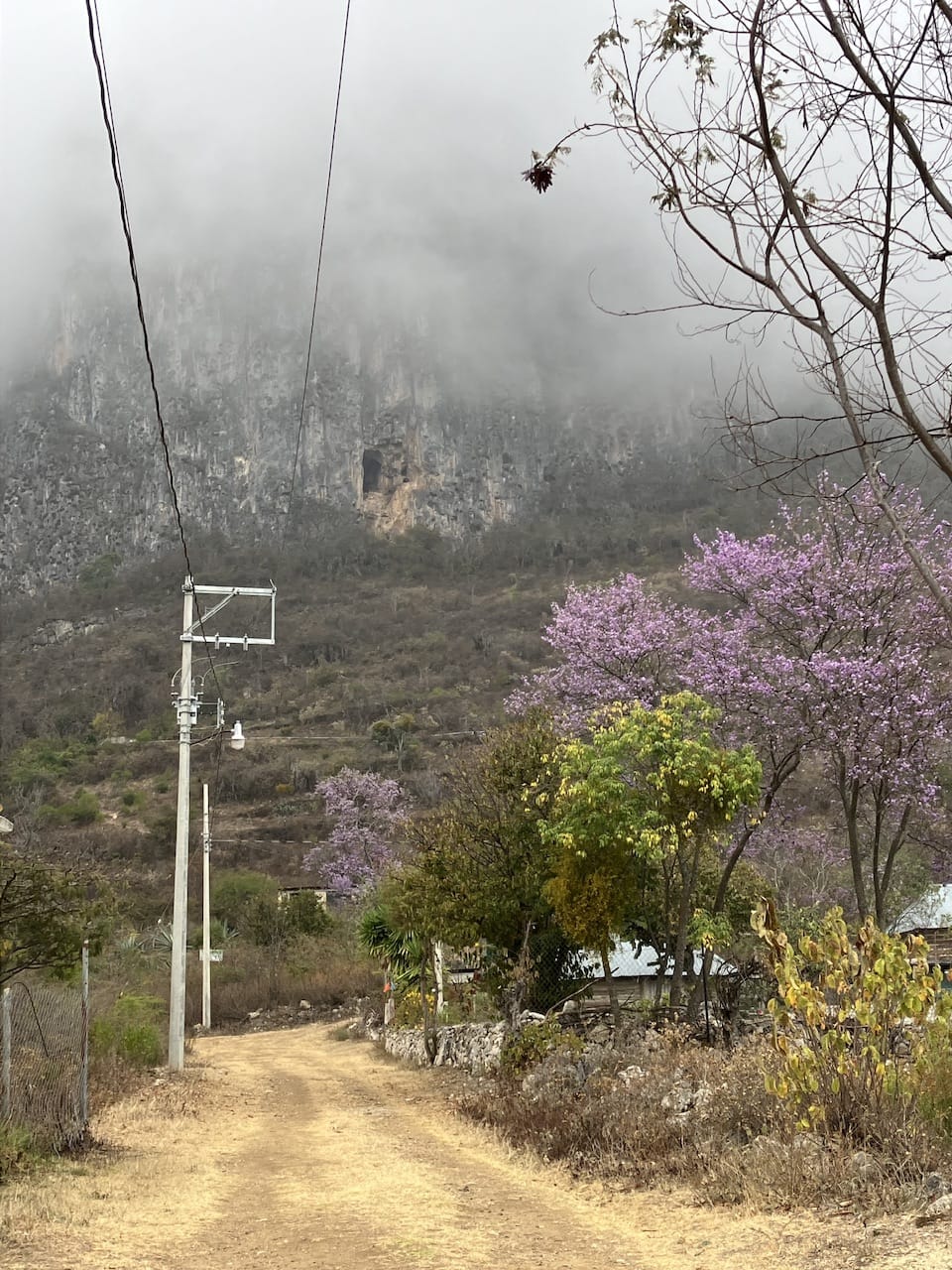A long line of residents from Santiago Apoala waited patiently for their turn to carefully pour a small glass of mezcal, a large glass of pop filled to the brim, and then a full bottle of beer, all into a hole in the earth.
Each person poured all three beverages. It took forever as they moved forward slowly, knelt down and slowly emptied each container. Nothing was rushed in the ritual.
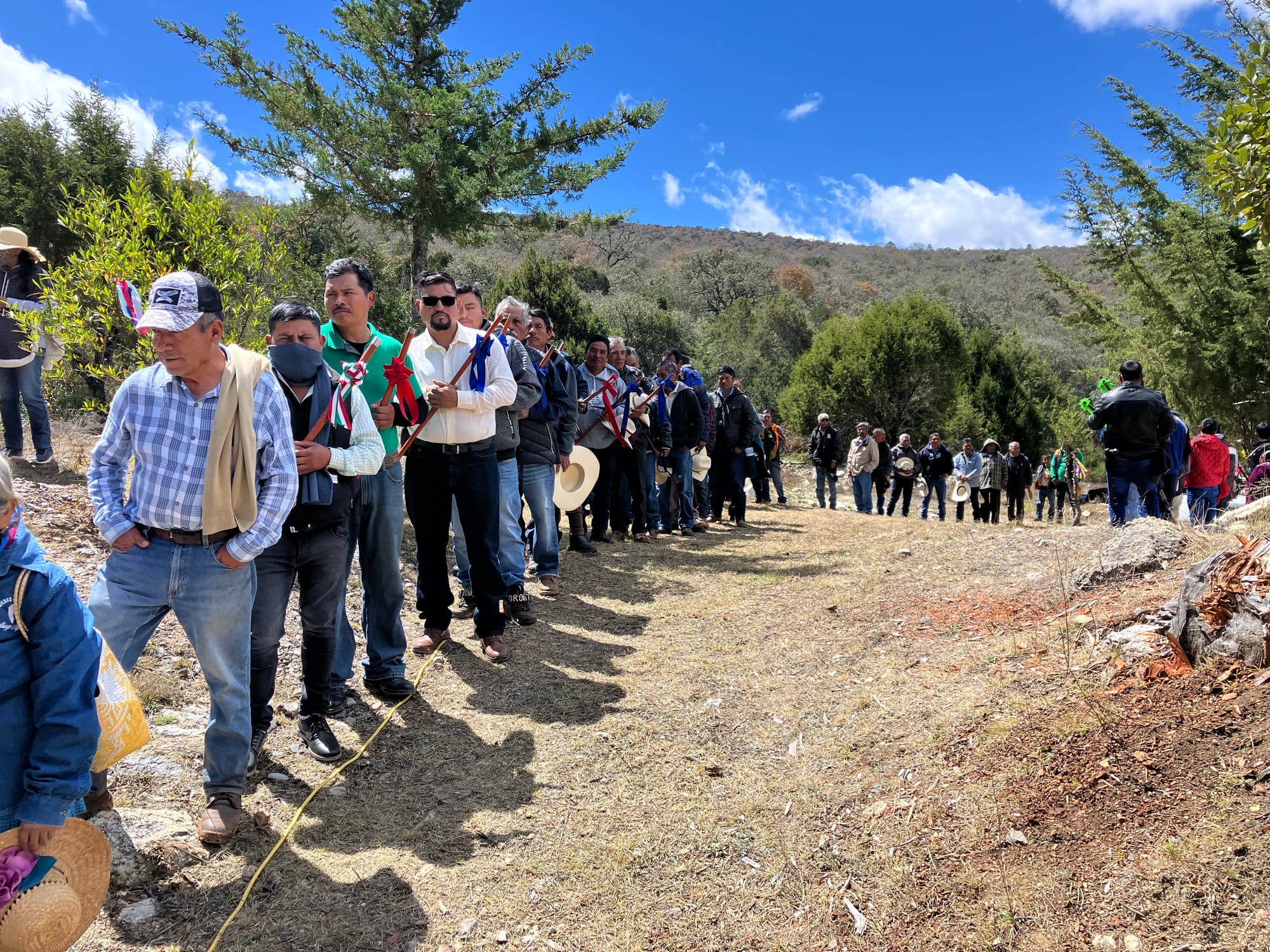
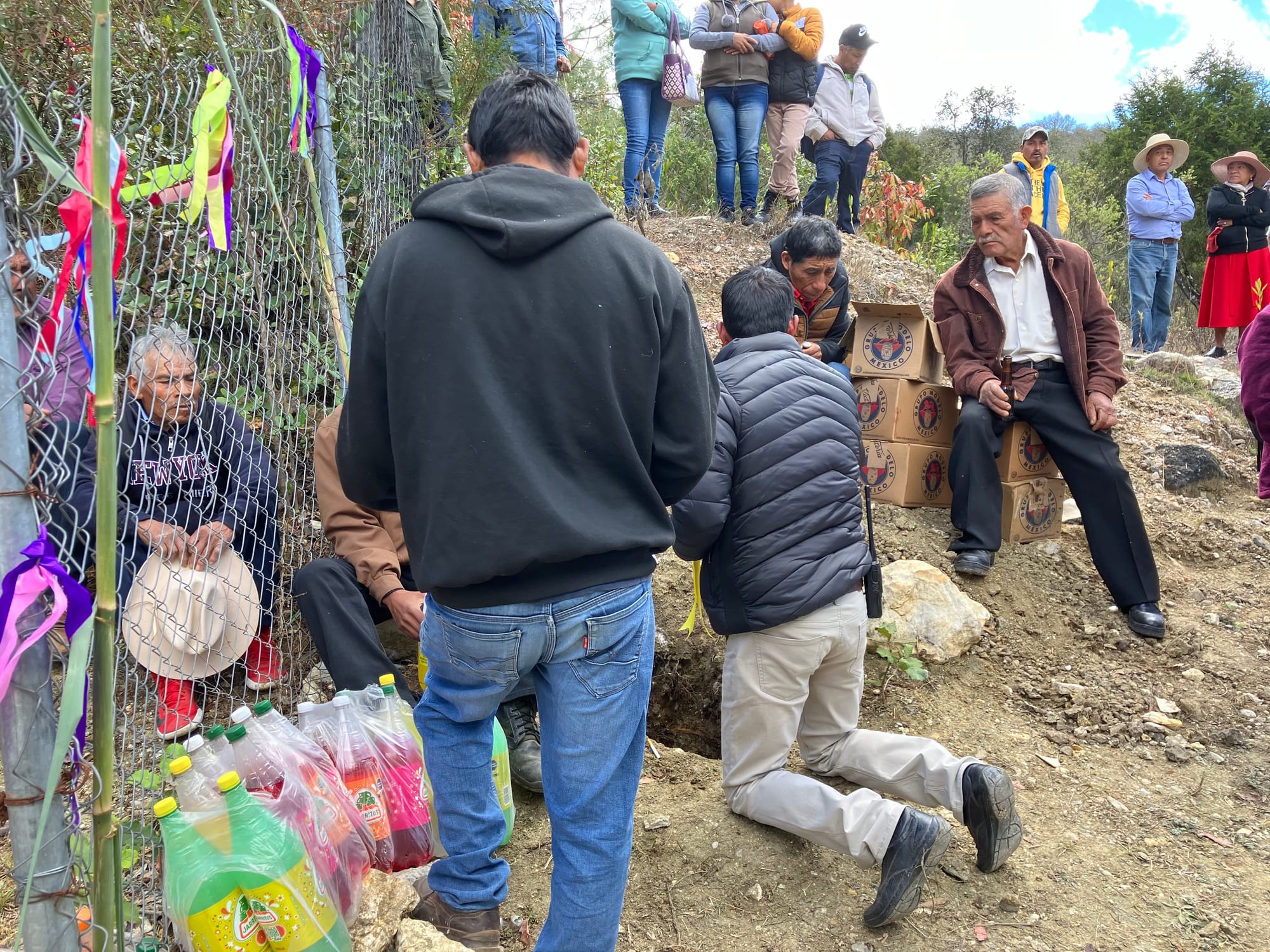
Some people drank the last swig of beer before their bottle was empty.
Packets of cookies and stacks of tortillas were gently added one by one to the hole, two feet in diameter.
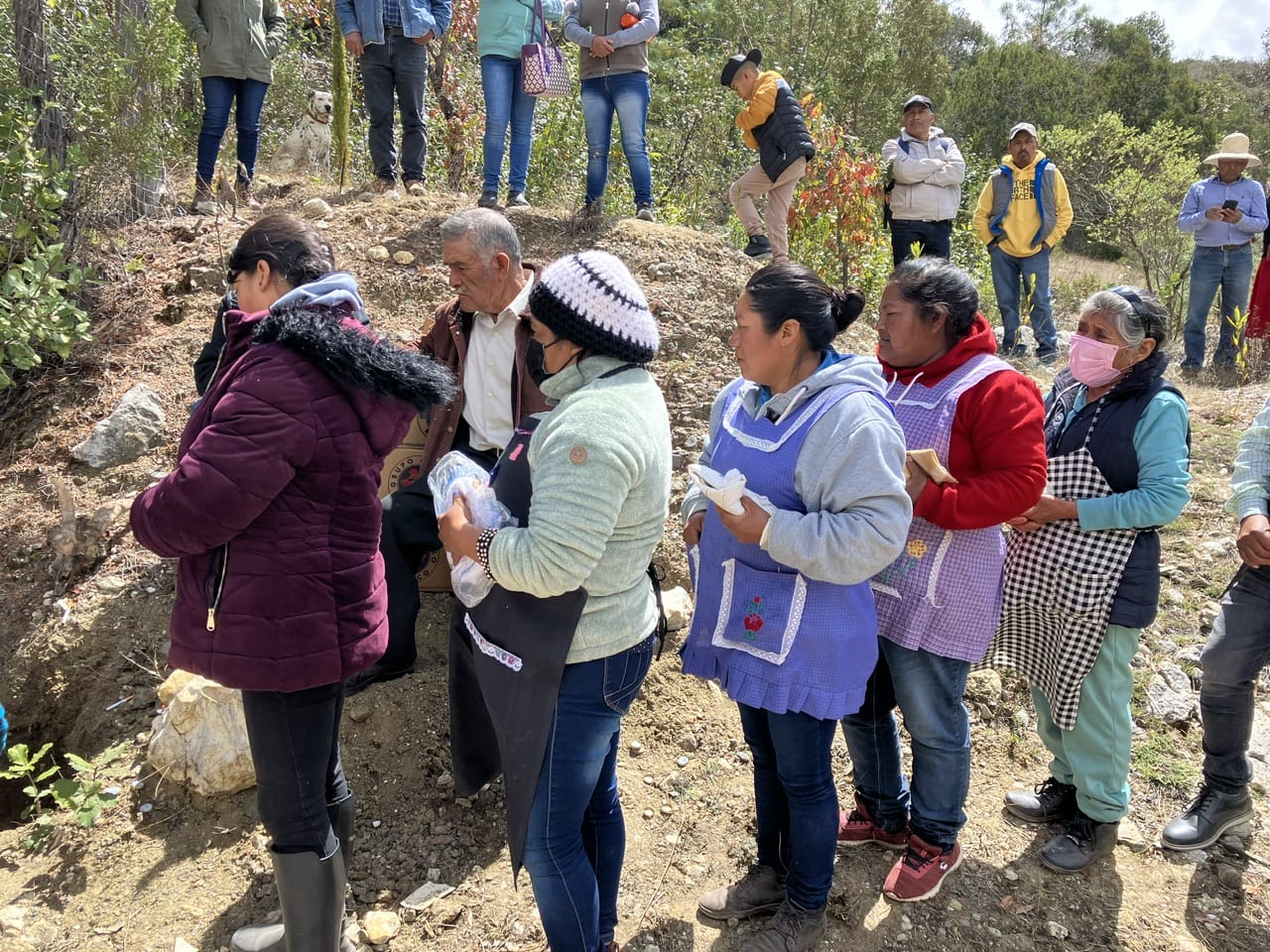
So much booze - many cases of beer, dozens of large bottles of mezcal and enough pop to fill a small corner store were handed to each person and down the drain it went.
It was silent, serious business that happens only once a year in the tiny community of Tierra Colorada in the Mixteca region of Oaxaca state.
We were in Apoala to hike but accepted the last minute invitation for the 45-minute drive up a dirt road.
They motioned us to step forward, and we slowly poured the drinks we were handed around the edges of the hole. The sign of the cross. Up down right left.
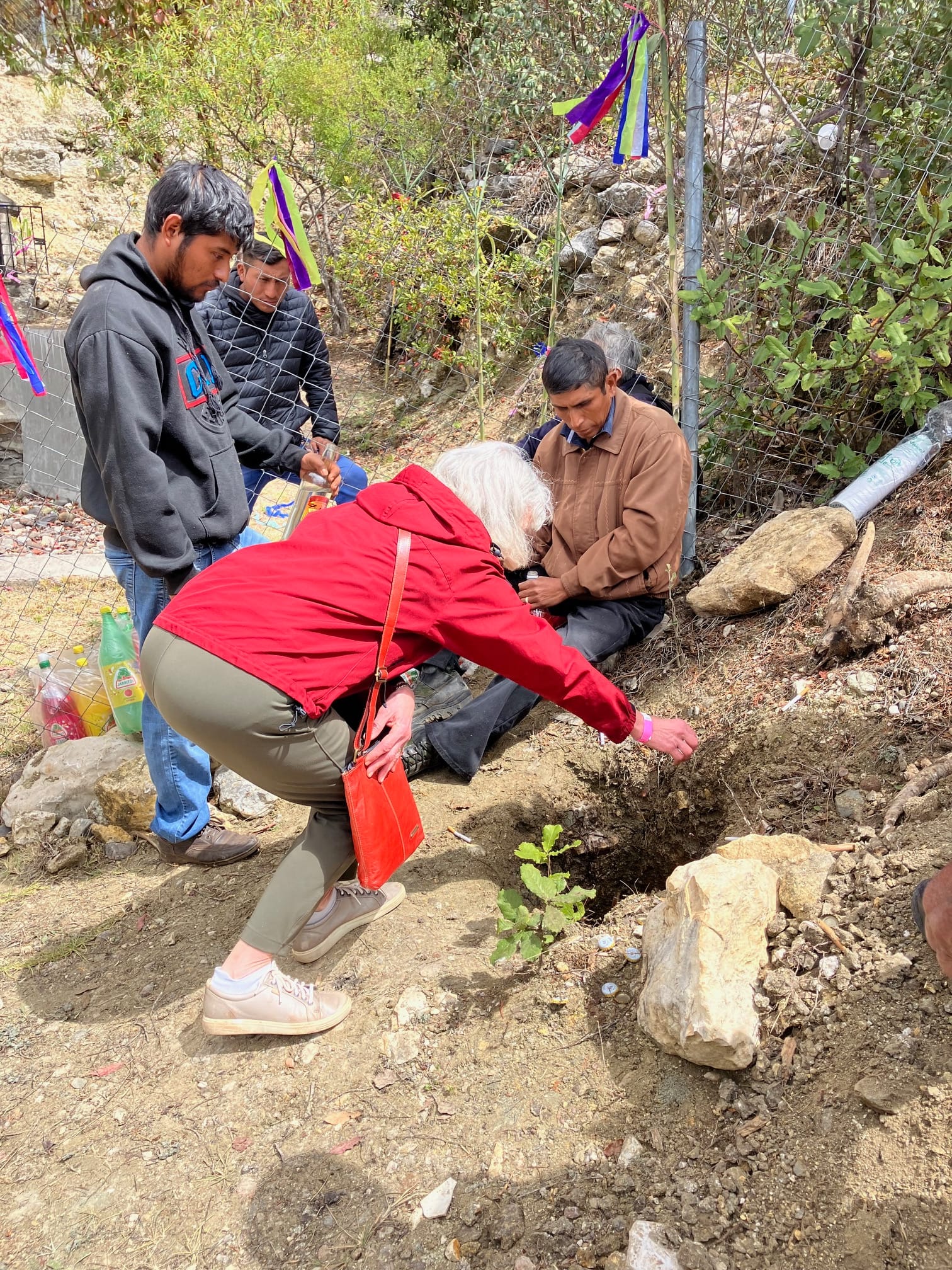
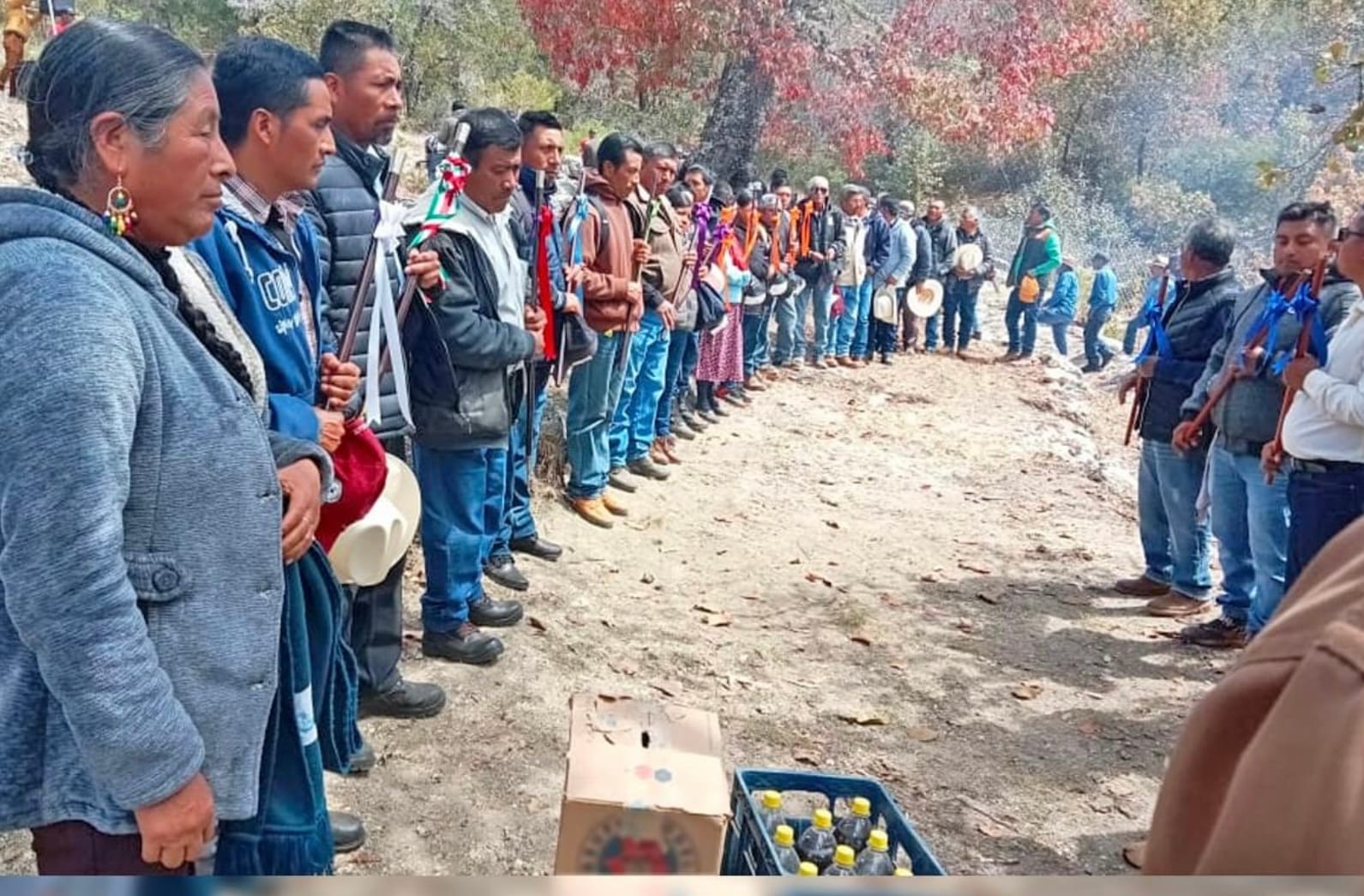
The occasion was an annual offering of gratitude to madre tierra for everything she supplies to this community and especially for her gift of the life-giving water that originates in the nearby spring.
A genuine glimpse into indigenous culture and I liked it. Honour and respect towards their ancestors, serious and heartfelt.
There was stillness and quiet except for the loud explosions of occasional firecracker rockets, followed every time by a dog barking.
Most women sat and wove palm hats, or were preparing food.
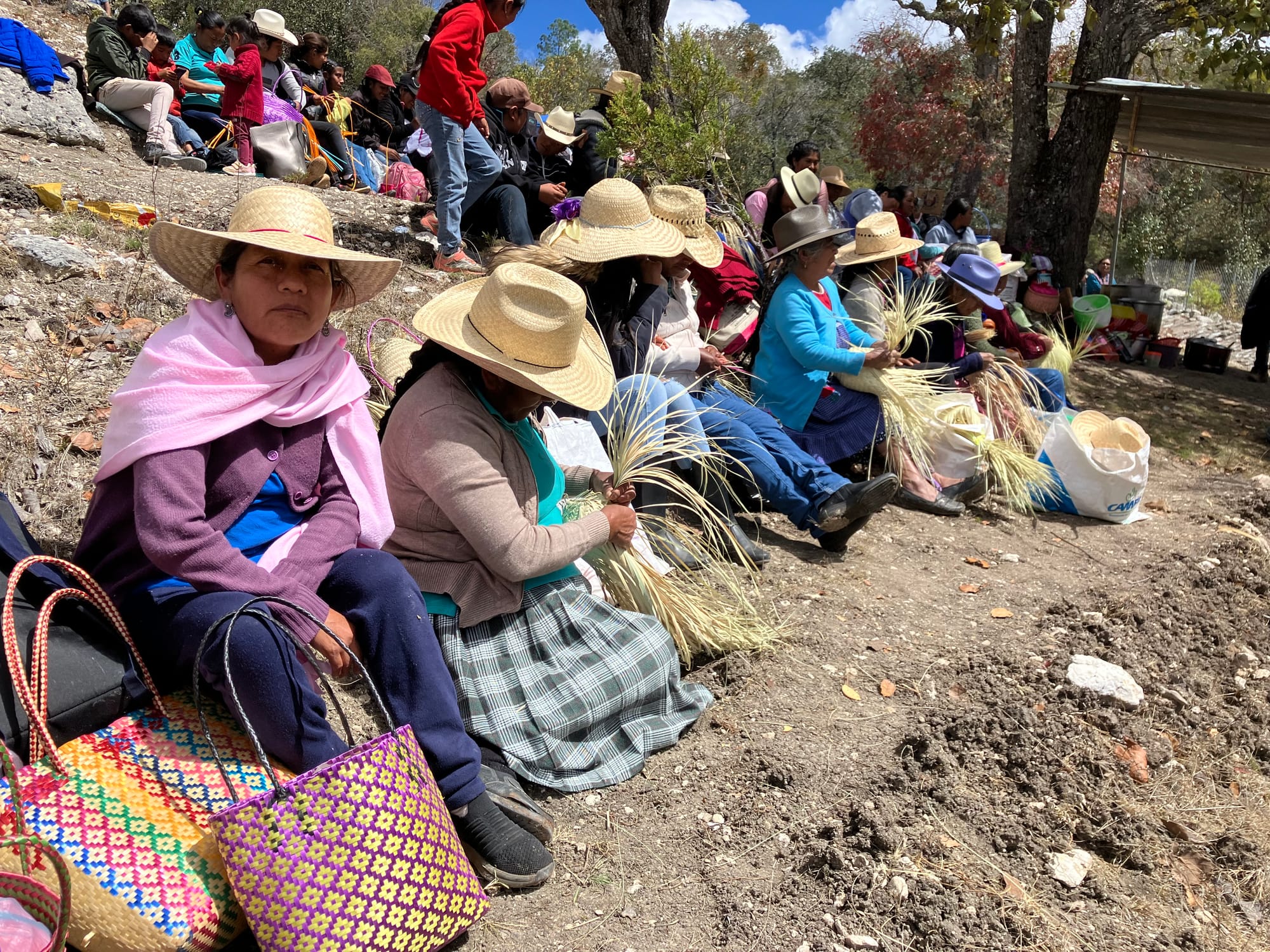
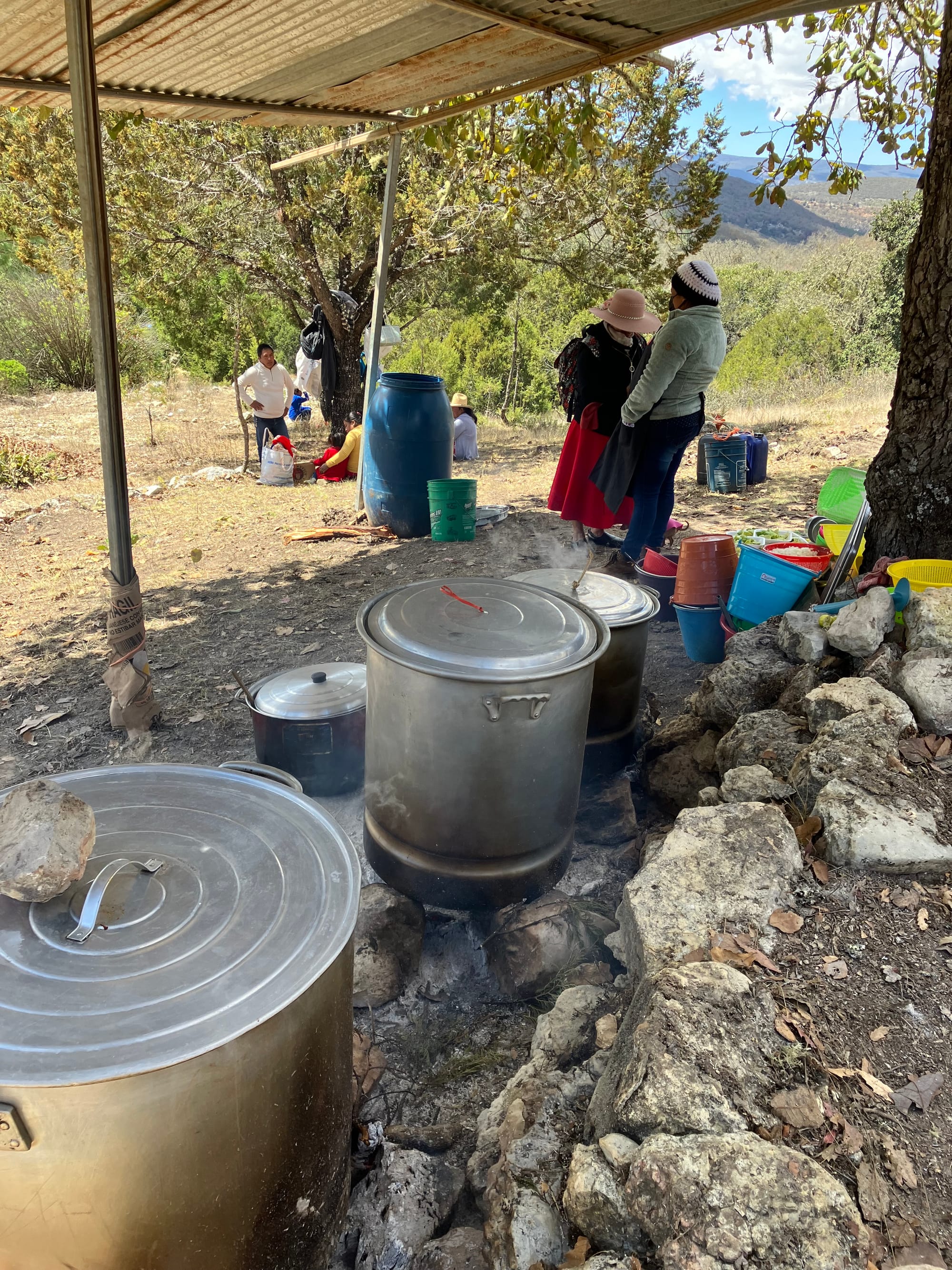
We felt a bit intrusive but were told we were welcome and they hoped we would share photos with other foreigners. People were reserved but we chatted in Spanish.
These Mixtec people have a lot of pride in their customs but it’s an area of subsistence agriculture with very little income. Ecotourism/cultural tourism may be a hope for the future.
Our hotel host said there was no need for us to pay anything, but the most important-looking guy shook our hands and seemed very happy when Dave gave him a donation of money. Another man recorded our gift on a clipboard.
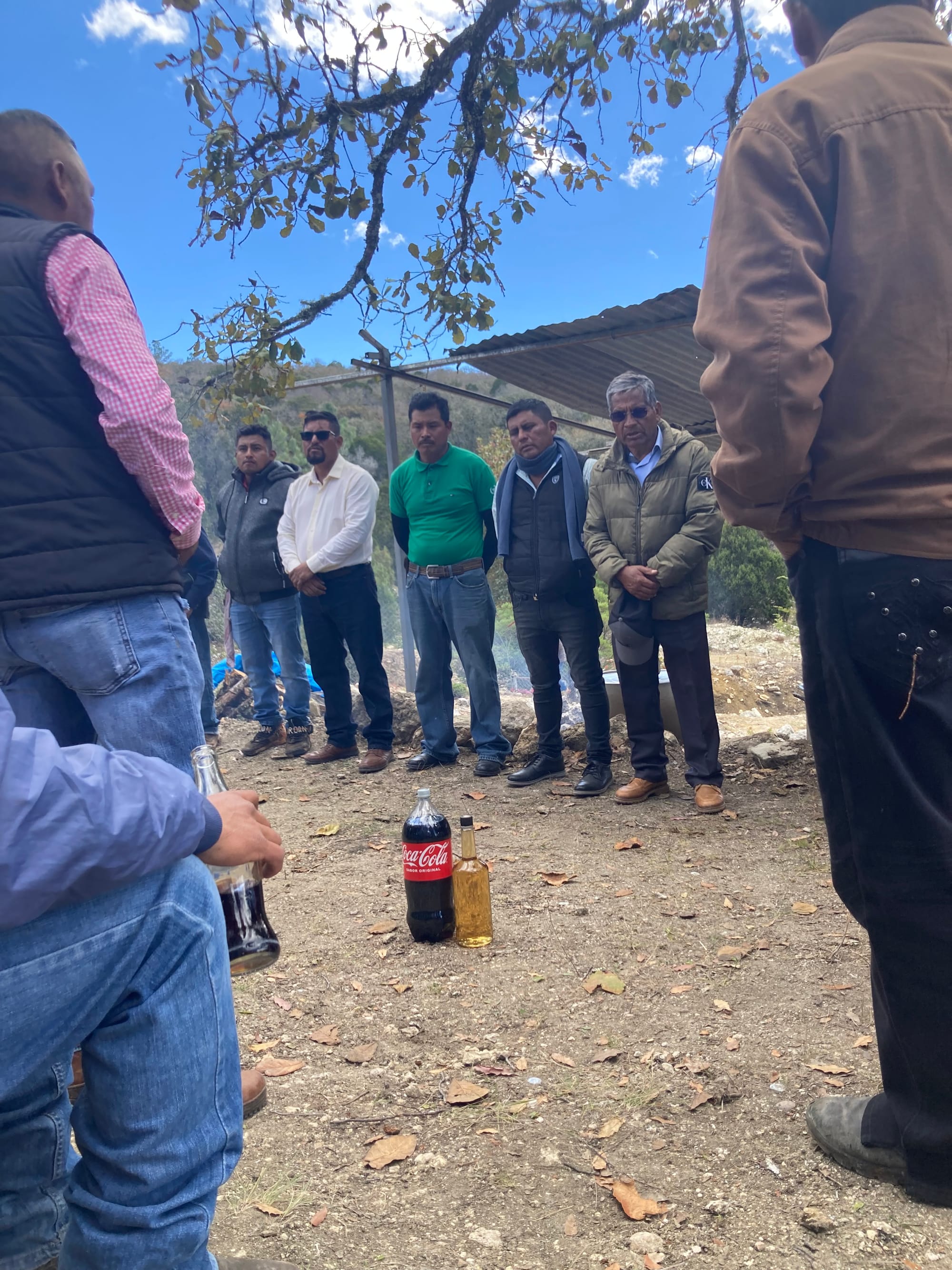
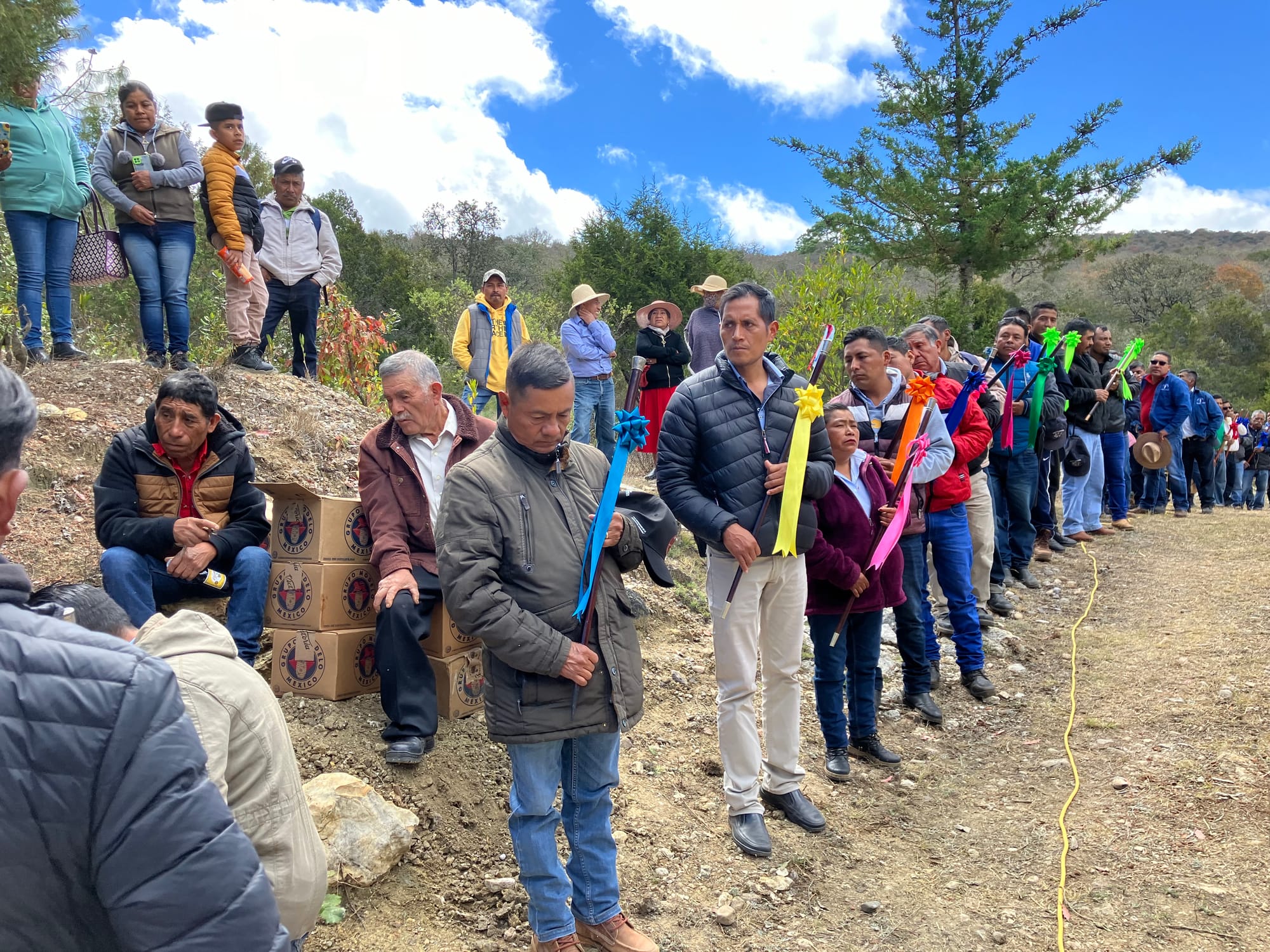
A goat was also part of the ofrenda. The head and blood had been placed deep in the hole before we arrived. When I asked our host where the body was he said we’re going to eat it.
The barbacoa goat meat was cooking on coals somewhere underground. The organs and herbs and maybe vegetables were bubbling in the giant pots. Large baskets held corn tortillas.
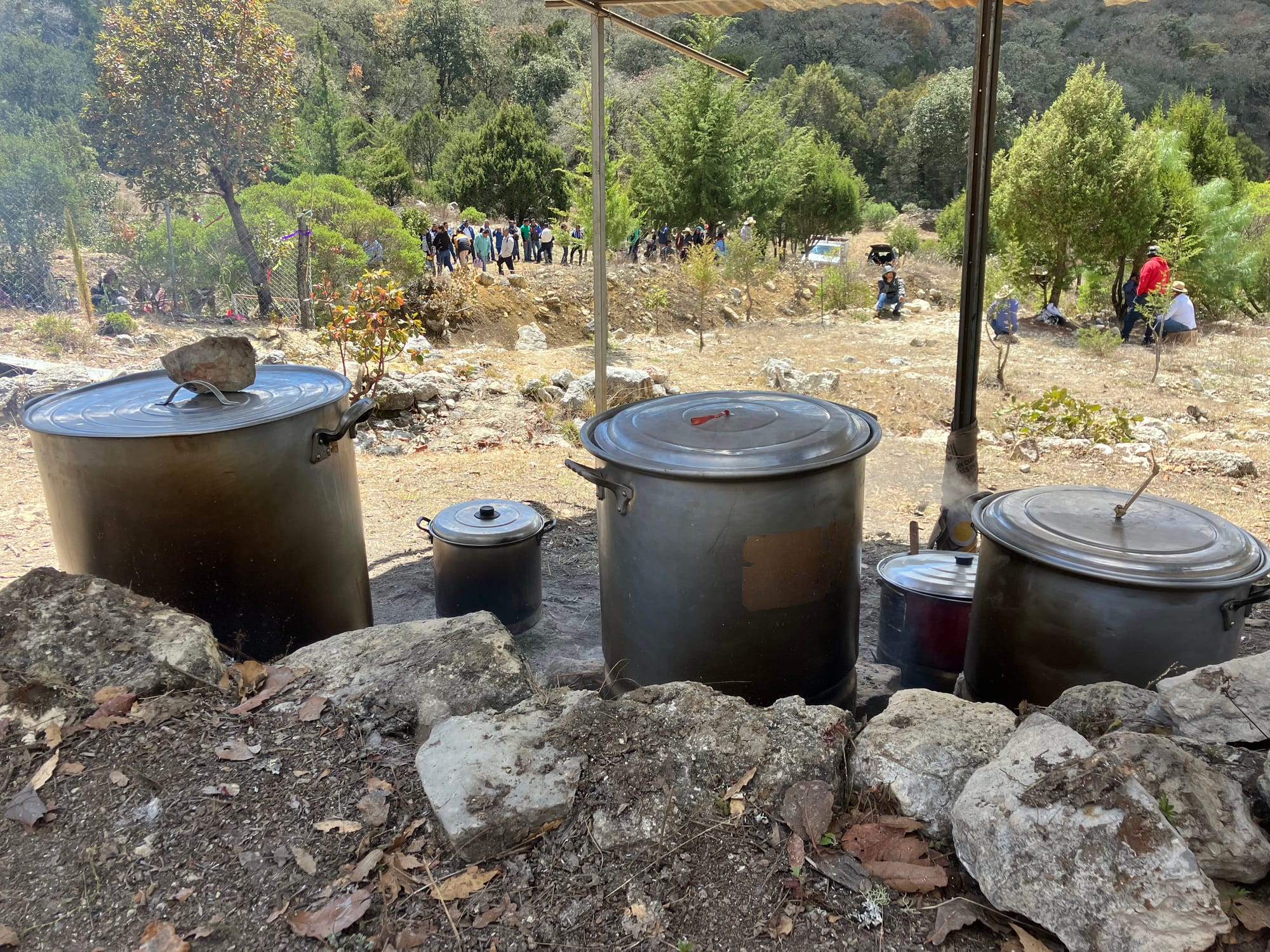
Unfortunately, or maybe not, we couldn’t stay for lunch. We had bus tickets back to Oaxaca and had a nearly 2 1/2 hour drive to get to the bus in Nochixtlán. Our host repeatedly assured me, no te preocupes, don’t worry, we’ll get there on time.
Yeah sure.
The wreck of a car that brought us up the mountain broke down on the way back. There was no other traffic on the dirt road. Everyone else was staying at the party, eating, drinking and dancing until dark.
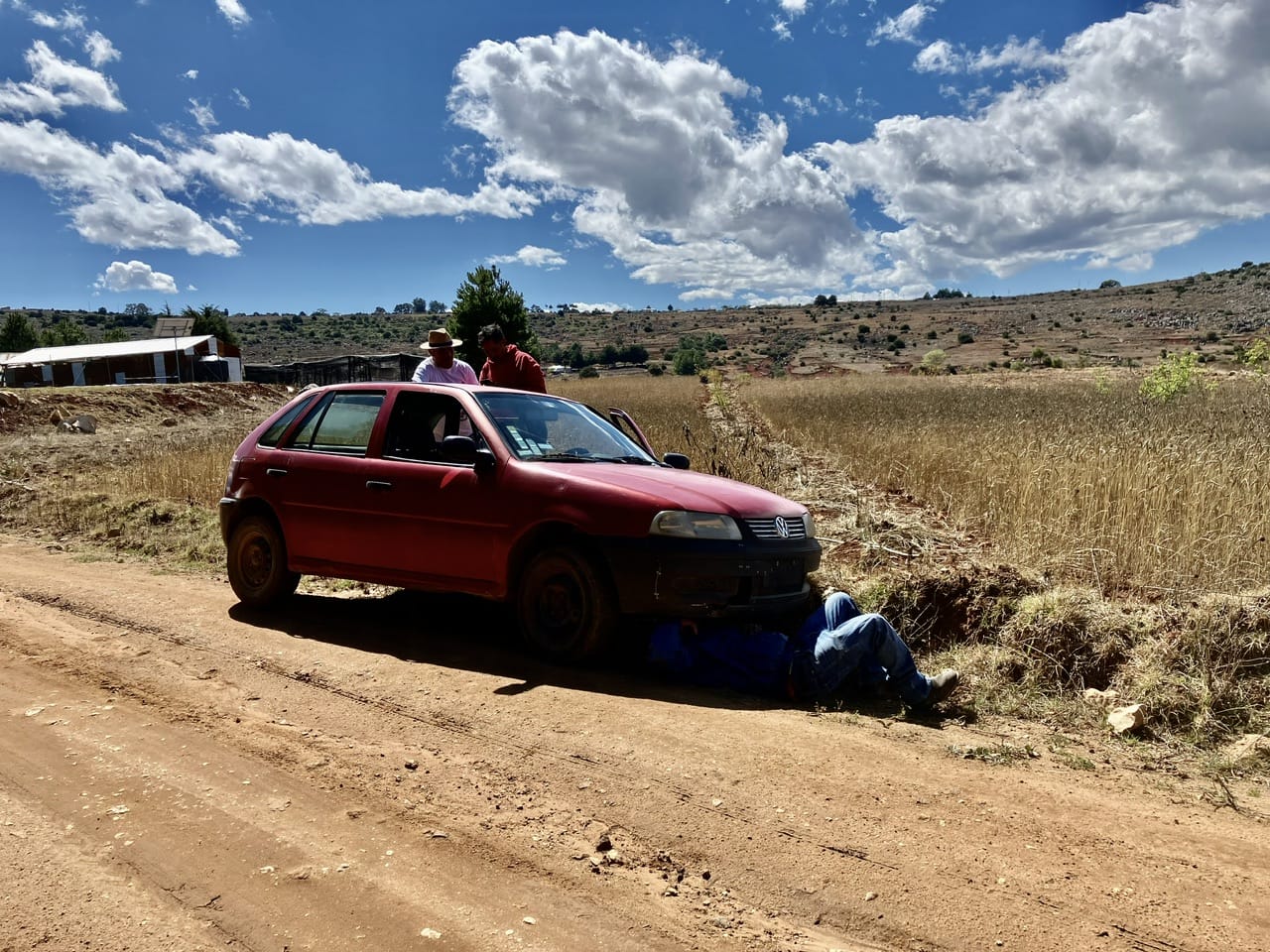
We started walking.
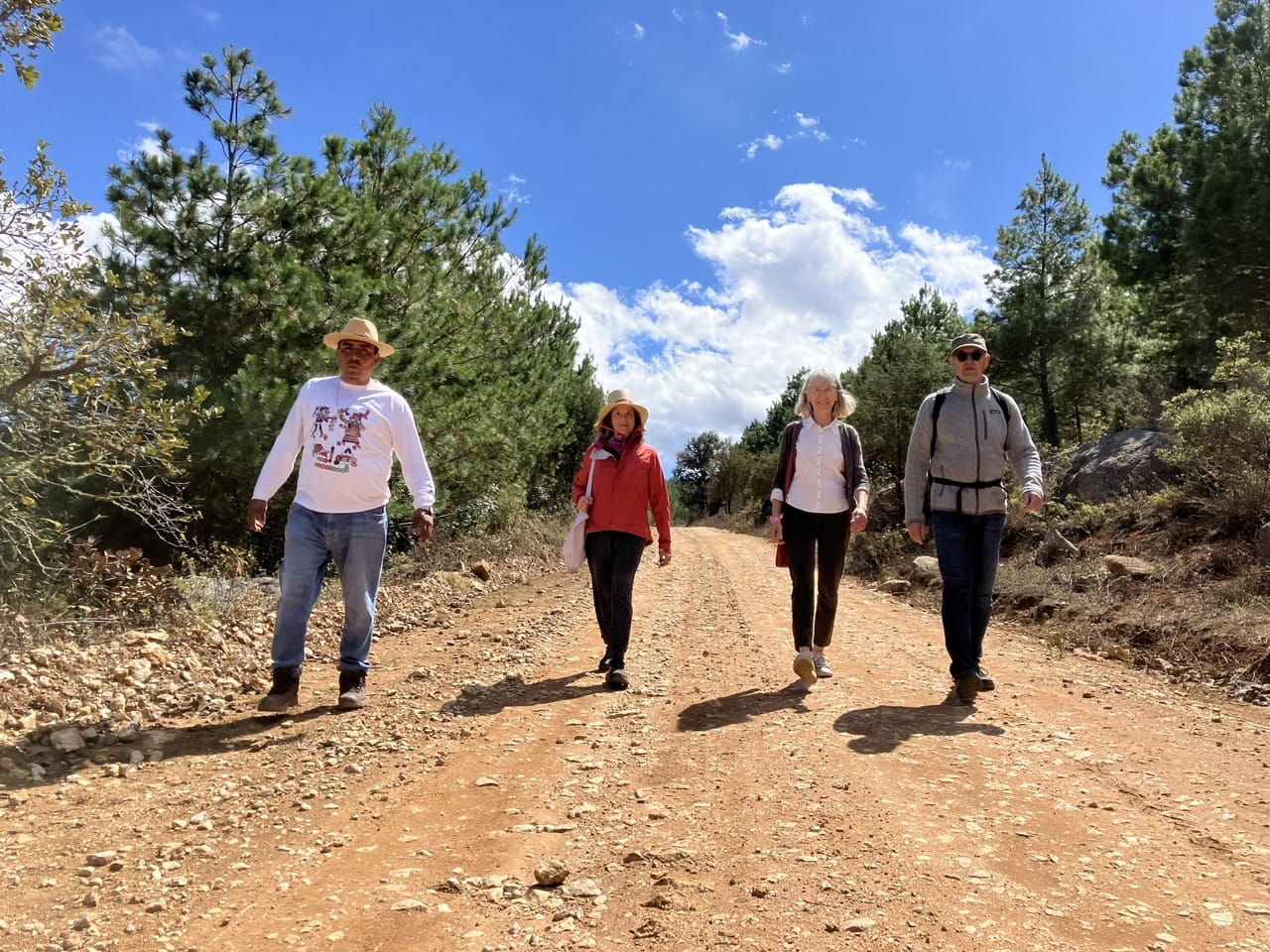
The weather was comfortable, not hot and not cold, and the landscape was beautiful. We felt perfectly safe once we got out of the rattle-trap car.
Don’t panic, I said silently. We can catch another bus when we eventually get down to Apoala and then Nochixtlán. So I took photos and hoped for the best.
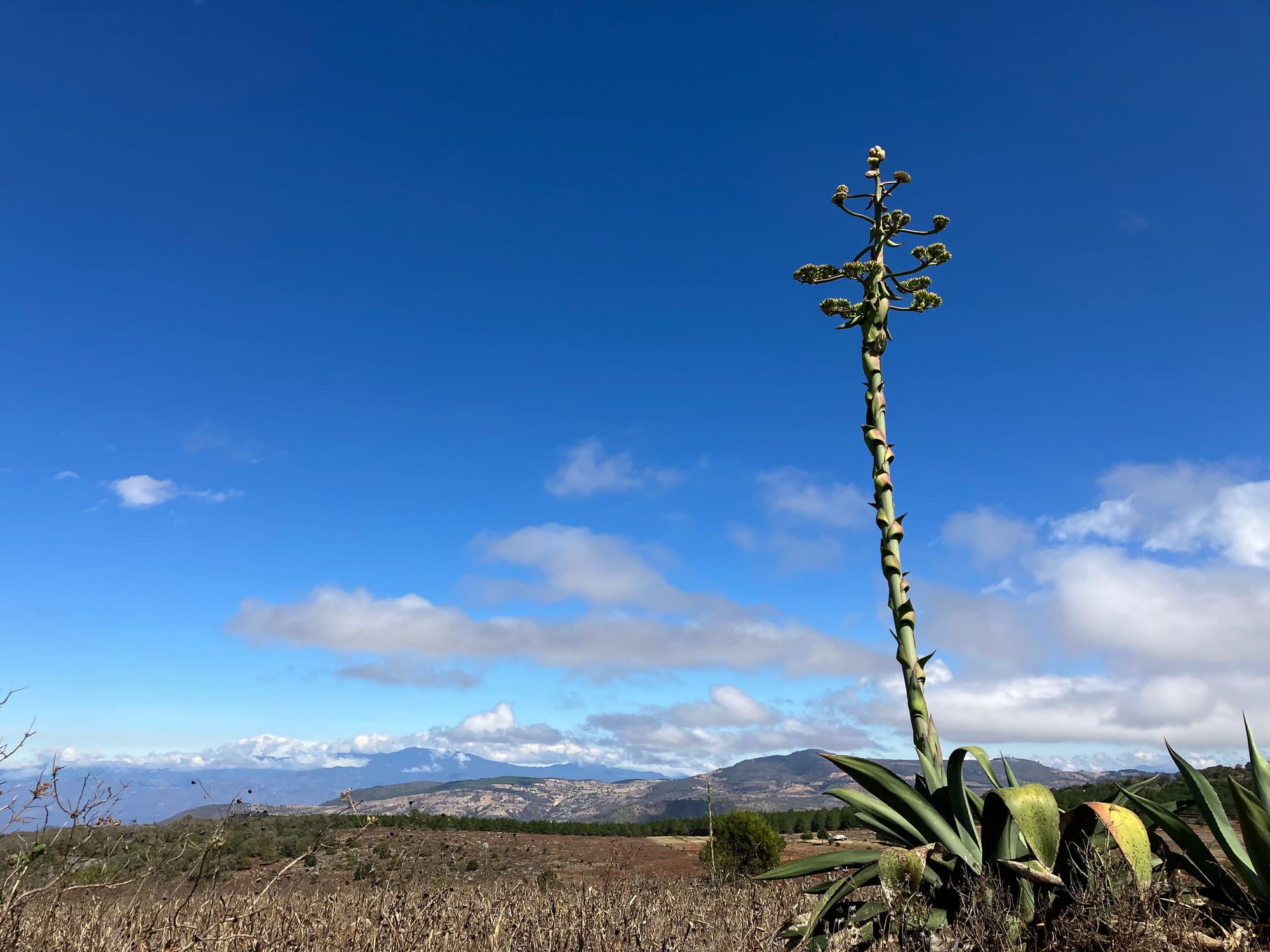
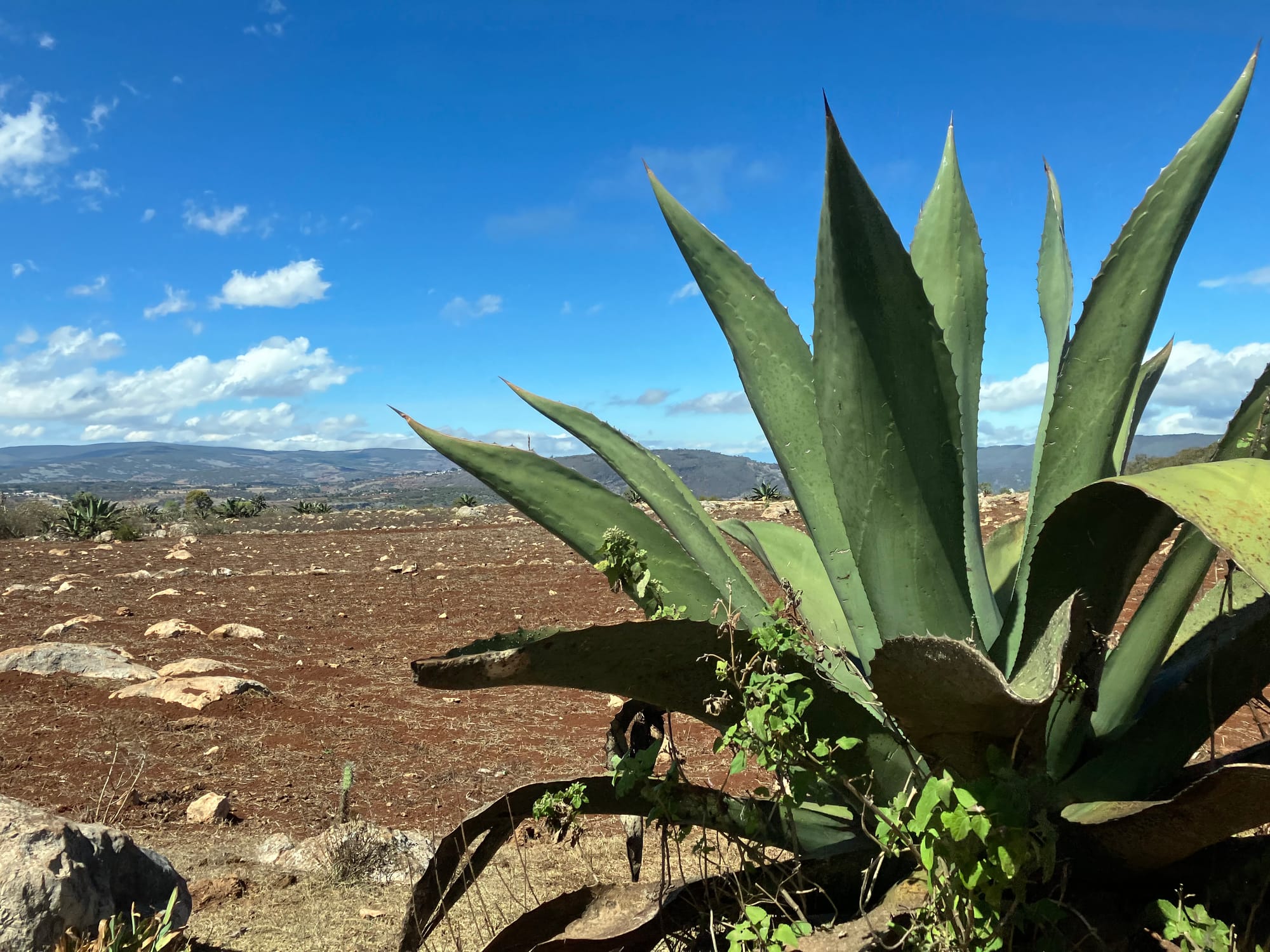
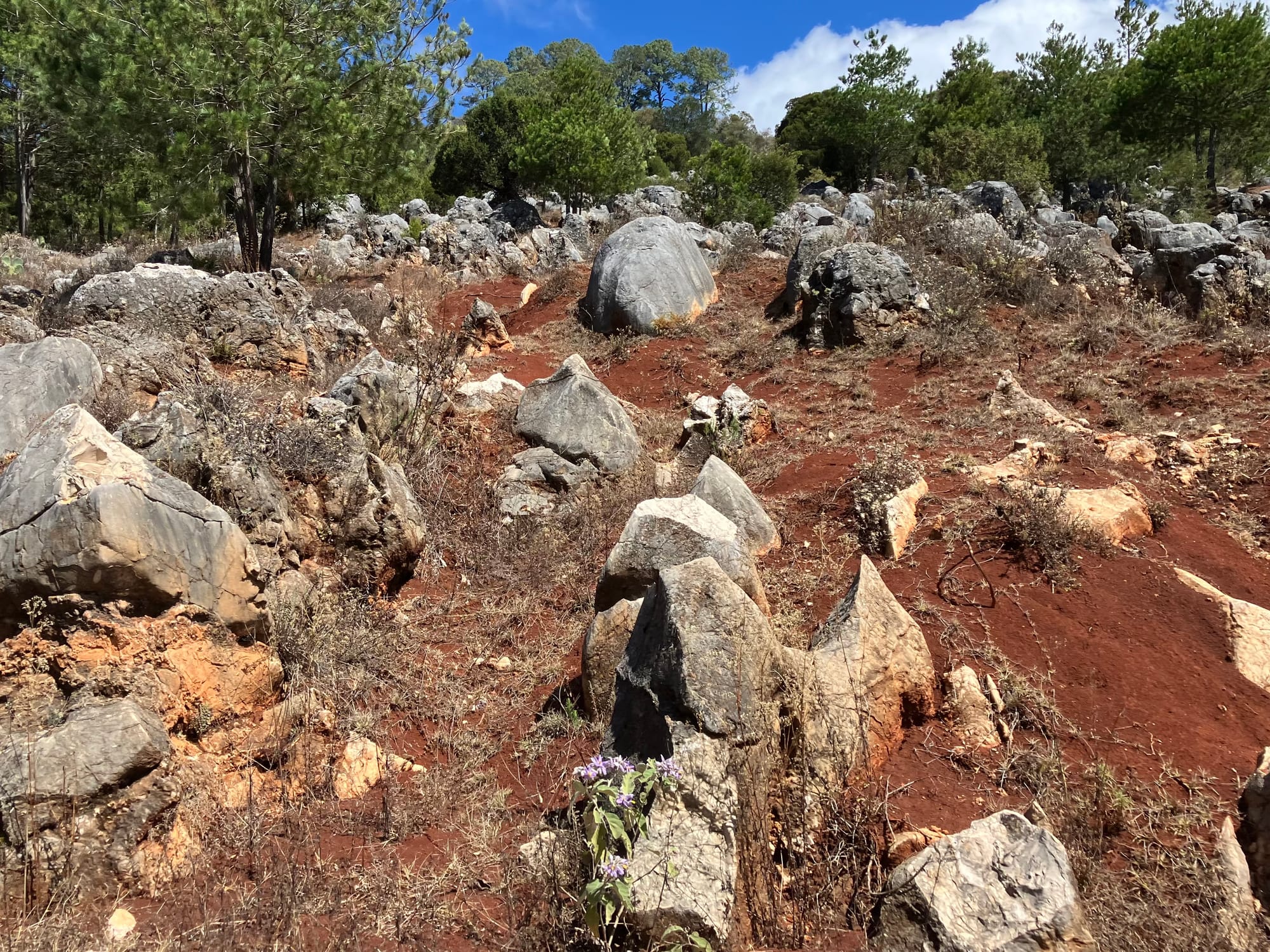
Then came a gift from the gods!
A young Mexican family drove by in a shiny new car, the only other travellers on the remote hillside. The three of us piled in and enjoyed the descent with a slow, careful driver. Our host stayed behind, no room for him.
Our next taxista was waiting and drove at top speed on a new cement road to get us to our bus on time.
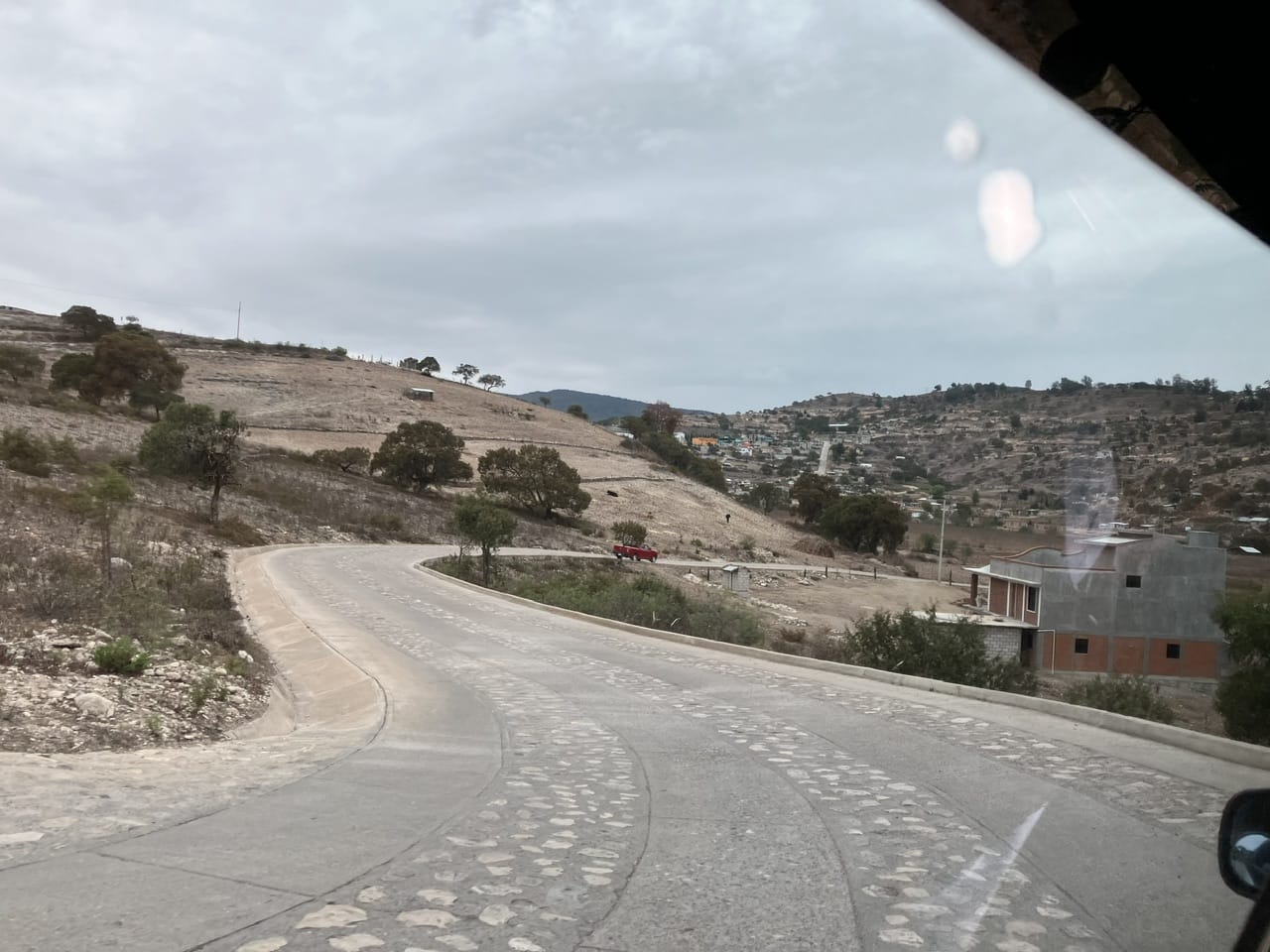
This adventure was last Sunday, Feb 18, 2024 when Dave and I and our friend Denise went to Santiago Apoala to hike and see waterfalls. We weren’t expecting a Mixtec ritual offering but it’s one more story to tell in the Old Folks Home, as our friend Gary says.
See my next post for the waterfalls and our Mexican evening wear in that pretty little valley town.
